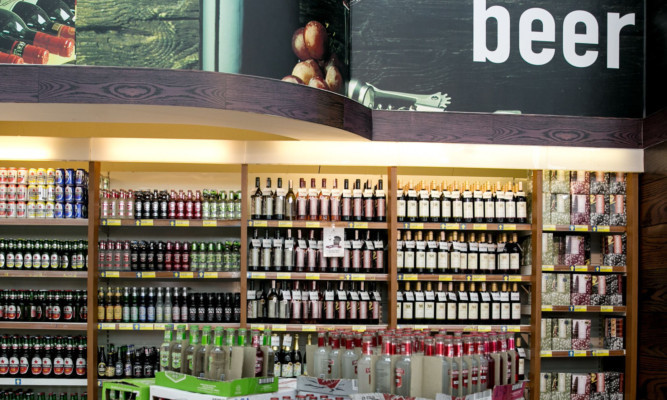Alcoholic drinks are contributing to obesity and should come with mandatory calorie counts, the chairwoman of the Royal Society for Public Health (RSPH) has urged.
Fiona Sim said she wanted to see labels on drinks set out calorific content in addition to alcohol content, while restaurant and bar menus should also carry the information.
Writing in the BMJ, she said research had found the public support the move, which is due to be voted on by MEPs today.
Alcoholic drinks that contain more than 1.2% alcohol by volume are exempt from EU regulations on nutritional labelling that came into force in 2011 covering all food and soft drinks.
Research conducted last year by the RSPH found widespread public support for calorie labelling on alcoholic drinks, with more than two-thirds (67%) approving.
“It is impossible to ignore our failure to deal with obesity,” Dr Sim wrote.
“Daily, in clinical and public health practice, we see its costs to individuals and society.
“Drinking alcohol is common and, in excess, harmful. To what extent do the calories consumed in alcohol contribute to the obesity epidemic?”
She said research by the RSPH last year found that 80% of 2,000 adults surveyed did not know the calorie content of common drinks, and most were completely unaware that alcohol contributed to the calories they consumed.
Among adults who drink, an estimated 10% of their daily calorie intake comes from alcohol.
Most women did not realise that two large glasses of wine, containing 370 calories, comprise almost a fifth of their daily recommended energy intake, as well as containing more than the recommended daily limit of alcohol units.
Dr Sim said some alcoholic drink manufacturers had already begun to introduce nutritional labelling.
She also suggested that clinicians, who regularly ask their patients about their weight, eating habits and levels of exercise, should ask them how many calories they are likely to consume through alcohol.
“There is no reason why calories in alcohol should be treated any differently from those in food,” she added.
A spokesman for the Portman Group, which represents alcohol producers, said: “A number of drinks companies and retailers are already taking voluntary action when it comes to calorie labels, but we live in a digital age and should be thinking innovatively about how people access information, not just focusing on product labels which are limited in size and space.
“The drinks industry fund Drinkaware – the alcohol education charity – who provide alcohol content and calorie information on their website and via your smartphone.
“However, it must always be the alcohol content not the calorie content of a product that should primarily inform consumer choice. This is why the drinks industry have labelled 80% of products on shelf with unit content, lower risk guidelines and 90% with a warning about alcohol and pregnancy – priority information agreed with the Department of Health.”
